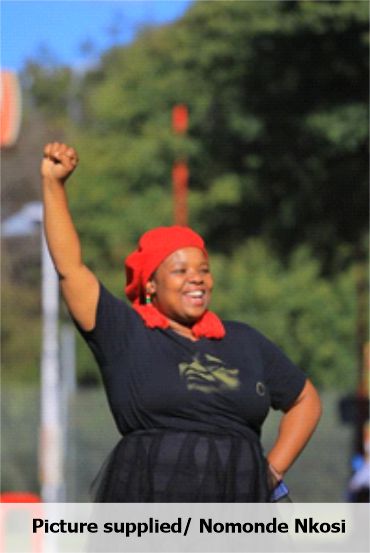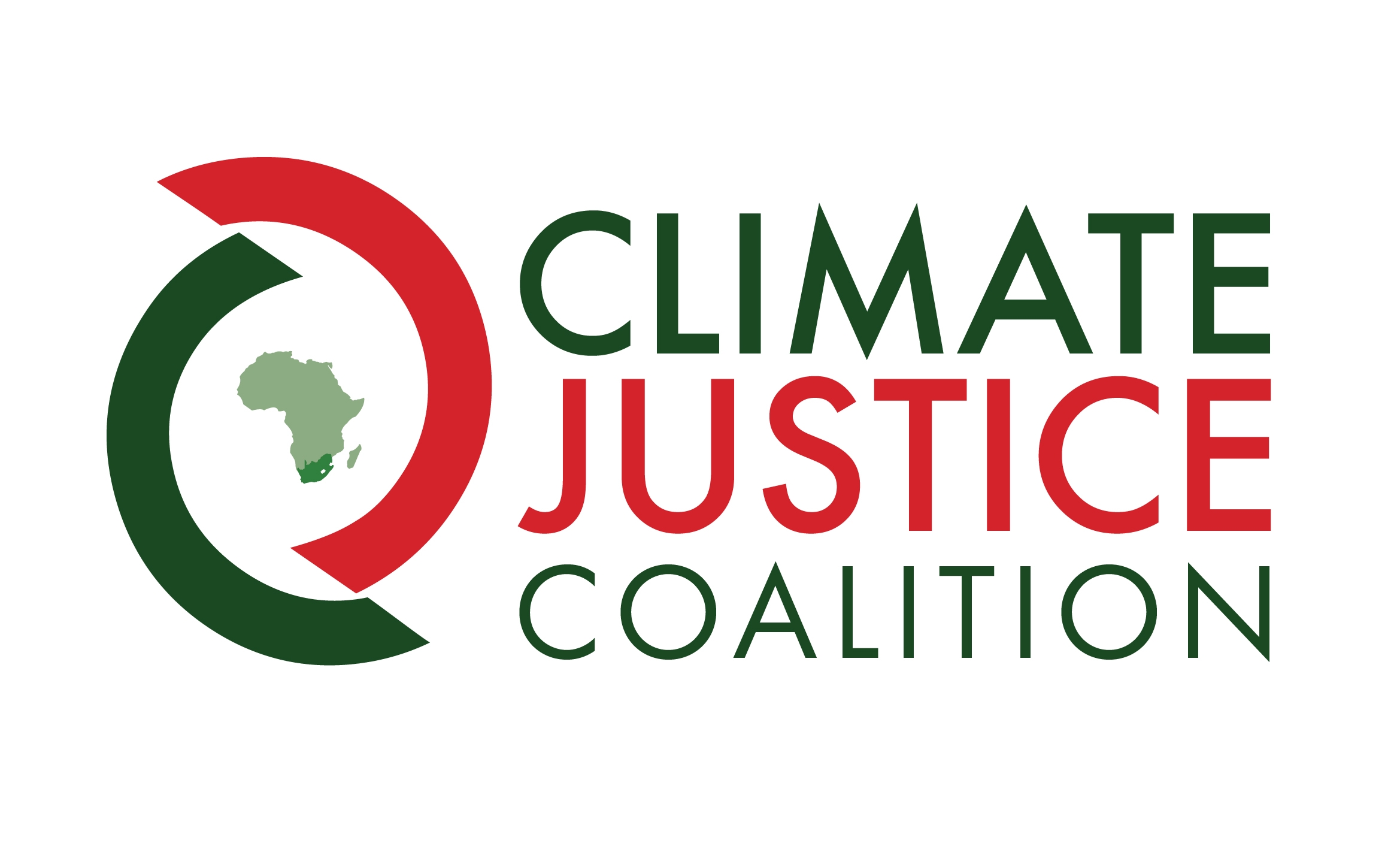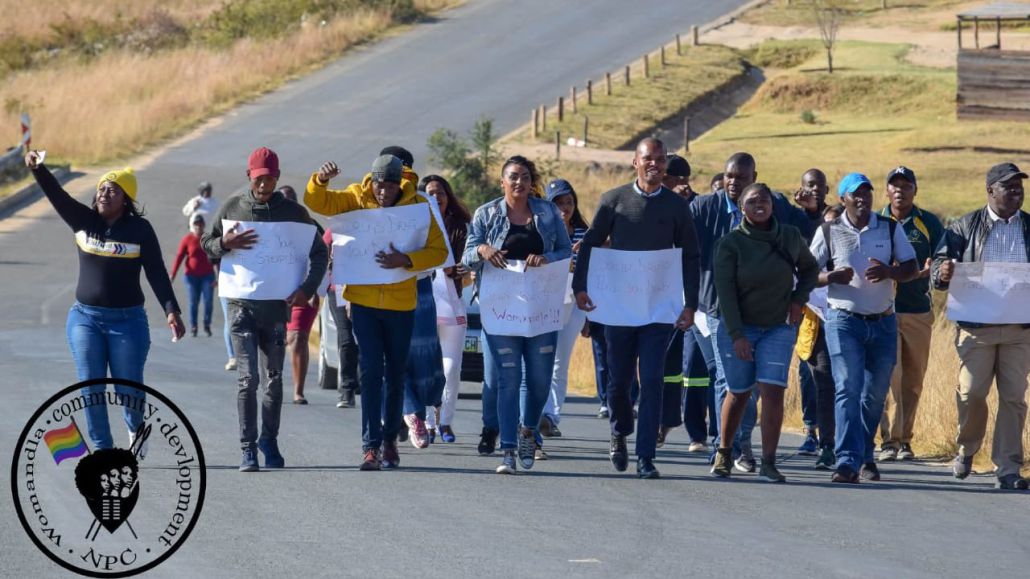One Struggle: Nomonde Nkosi’s Water and Women Activism
by Lindokuhle Masango

Nomonde Nkosi is known as a feminist and environmentalist. She uses her voice to liberate women and the environment from mining injustice. Nkosi’s activism is about exposing the patriarchal systems that exploit women and the planet. Nkosi believes that both struggles are dehumanising and devalue the culture of the people.
Nkosi was conscientised by looking up to strong Black women leaders like Winnie Madikizela-Mandela and Dr. Khanyisile Lichfield-Tshabalala. “I looked up to Winnie Mandela as a young girl because of how she cared for everyone around her and made sure those vulnerable had a voice,” said Nkosi. Her passion to build and support her people led her to be elected as the first black female of the Student Representative Council in high school. Today she serves as director of Womxndla, a Carolina-based organisation she joined in 2019 that advocates for women affected by gender-based violence, challenges patriarchy, and pushes for women to occupy strategic positions of power.
Nkosi breaks the limitations of defining a woman as someone who belongs in the kitchen and has no voice. She is a Pan Africanist who believes that women must protect and fight for their land, that Africa comes first and her passion as an environmentalist and feminist stems from it. “Mam’ Khanyisile taught me a lot about African spirituality. She told me the story of how the Black Panther began, in a village under attack by the French. The queen of Sarraounia was stripped naked and humiliated in front of her people. Before her execution, she asked to say grace in her shrine one last time. When she emerged, she transformed into the Black Panther and chased the French away. That story highlighted the power of matriarchy and resisting colonialism.,” she said. Now, she uses this ancestral connection to the land, and the lesson to resist harmful and extractive forces to fight mining corporations which are poisoning water sources in Carolina.
“The truth is that not having access to clean water is a violation of human dignity,” she says. Nkosi resides in Carolina, a place surrounded by mines. Houses crack during mine blasting and while all this happens, the environment is left with polluted air, contaminated water and destroyed infrastructure. The area also struggles with water contaminated by acid mine drainage. She adds that women and men are not equally affected by the inacess to safe, clean water.
A woman’s health is directly compromised when she is forced to bathe in contaminated water. Exposure to unsafe water can cause severe skin infections, reproductive health complications, and pH imbalances that increase vulnerability to sexually transmitted infections. Toxic chemicals in water sources are also linked to birth complications, miscarriages, and, in extreme cases, congenital deformities. Beyond health, the water crisis exposes women to violence: many must walk long distances to rivers after work to collect water, often returning late at night through unlit streets with no community protection. This daily reality increases their risk of assault, especially when South Africa’s gender-based violence rates are so high. At the same time, women bear the burden of taking care of the household: cooking, cleaning and washing their family’s clothes, placing them at greater risk of chronic illness.
“While mines bring employment opportunities to an extent, it oppresses women and the environment. The sub-contractors form romantic relationships with our fellow sisters and when the mine shuts down they are left with unwanted pregnancies, sexually transmitted diseases and low self-esteem,” said Nkosi.
Without fear or favour, Nkosi is at the forefront fighting for women’s rights. She was also part of conducting an initiative with Women on Coal and the South African Resource Watch (SARW). She interviewed women in Carolina to find out how water affects their daily livelihoods, documenting their in-depth understanding of climate change in a report. She also helped women understand what climate change is and what Just Energy Transition (JET) means for them and their communities. “From the first outreach was a success because women came out in numbers and showed interest requesting to be taught more on energy sustainability, taking care of the environment and how to sustain themselves as women,” said Nkosi.
While the organisation works tirelessly for women’s and environmental justice, it often lacks support and visibility from local NGOs and government. Other organisations and the municipality collect their findings and publish them as their own, without funding or credit. They are also sidelined from collective decision-making, especially when questioning a pending and harmful gas exploration project that the community of Carolina knew nothing about. Nkosi believes this is because of their work exposing the reality of the water crisis and its impact on women and the environment.
Ultimately, Nomonde Nkosi’s life is a testimony that the battle to protect our planet and women are not separate. Her legacy is not only about speeches she has given but the lives she has inspired to believe that a better world is worth fighting for. “When you educate a woman, you educate the nation,” said Nkosi.
About the author: Lindokuhle Masango is an aspiring photojournalist from Carolina, Mpumalanga. A lover of capturing nature photography, history and reading fiction, Lindokuhle finds inspiration and motivation in stories — whether on the page or through the lens of a camera.

